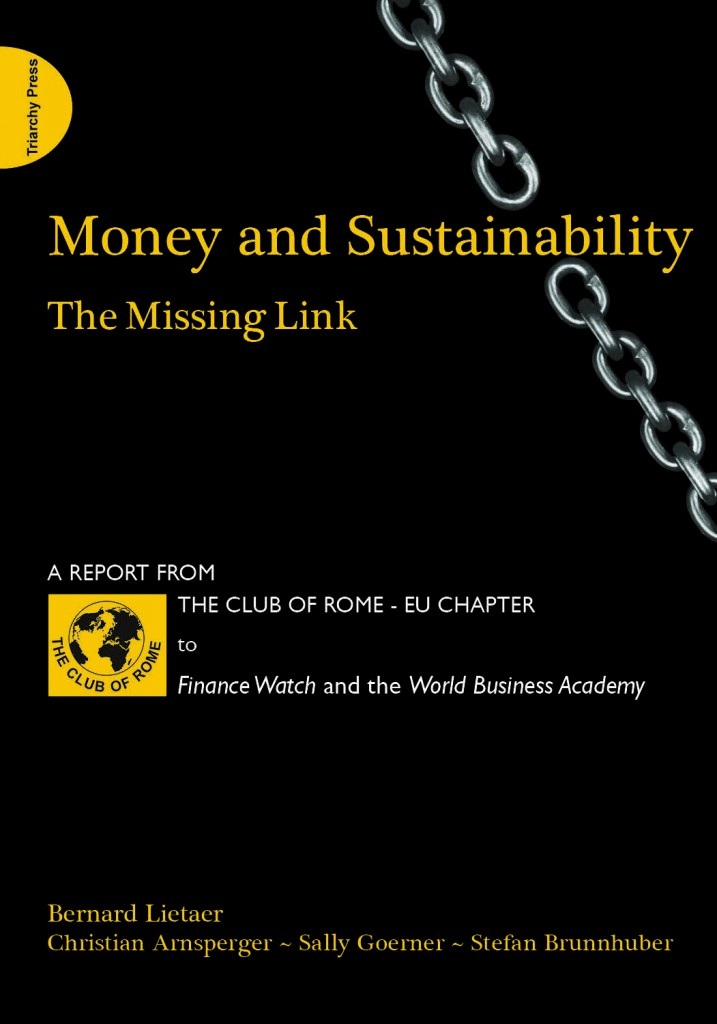|
Imprint: Triarchy Press
Published: 2012 List Price: £25.00 Format: Paperback, 216pp. Size: 18 x 25.5 cm ISBN: 978-1-908009-75-3 Tags: Complementary Currency, Money System, Club of Rome, banking, currencies, eurozone, financial crisis, Civics, sustainability. Money and Sustainability The Missing Link Author videos ~ Reviews Buy the paperback (£25)Buy the pdf (£22)Click the 'Buy' button below. At checkout, click No postage on ebooks from the dropdown.
After paying, we will send an immediate confirmation and email your ebook file within 24 hours. eBook ISBN: 978-1-908009-92-0
version: bookmarked pdf (pdf text cannot be edited, printed or copied - email us if you need this capability.) More about the book:
|
Money and Sustainability:
|

